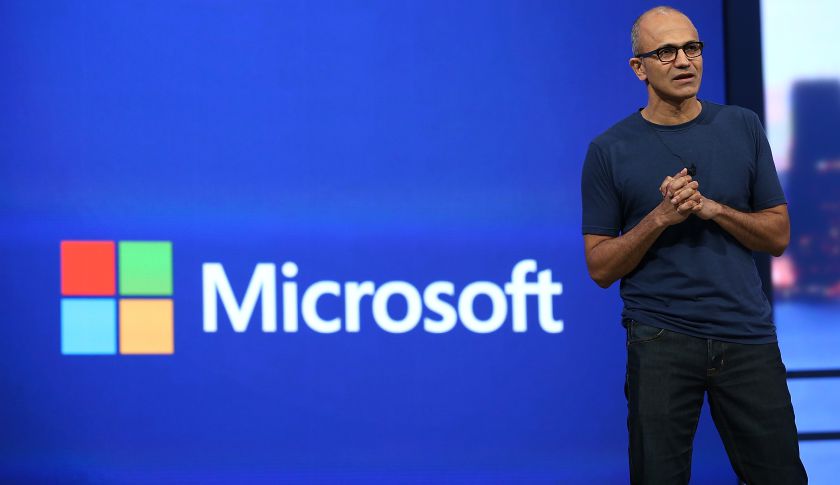Microsoft’s second quarter earnings report released Monday had a few bright spots, including rising sales in mobile devices and cloud services. Overall, the company’s sales were up 8% in the quarter ending Dec. 31, though costs related to acquisitions and layoffs meant profits were down 10.6% to $5.9 billion.
上周,微软发布了第二财季收益报告,其中出现了一些亮点,比如移动设备和云服务的销售额不断上升。虽然由于收购和裁员影响,微软的利润下滑了10.6%,降至59亿美元,但该公司截至2014年12月31日的季度销售额总体还是实现了8%的增长。

Despite the company’s good sales numbers, revenue from copies of its Windows operating system installed on new computers, long a reliable source of cash, were down 13% year-over-year. Why?
尽管微软销售额涨势喜人,新电脑安装Windows操作系统所带来的收入却同比下降了13%,要知道它一直是个可靠的收入来源。为什么会出现这种情况?
First, the consumer PC market has been either slipping or stagnant for years, meaning there’s fewer devices capable of running Microsoft’s PC operating system being sold.
首先,个人电脑市场近年来一直不景气,也就是说,运行微软操作系统的个人电脑销量减少了。
But there’s another reason that’s far more under Microsoft’s control.
但还有另一个原因是微软完全不能控制的。
Back at the end of 2013, Microsoft MSFT -9.25% was on the verge of ending technical support for Windows XP business customers. That convinced lots of IT and accounting departments it was finally time to upgrade from the decade-plus-old operating system, driving sales of Microsoft’s newer OSes, like Windows 8.
到2013年年底,微软就已经基本不为Windows XP的商务用户提供技术支持了。许多公司的IT部门和财务部门因此笃信,终于是时候升级这款已有十多年历史的旧系统了,而这将提高微软新系统如Windows 8的销量。
However, that XP end-of-life phenomenon wasn’t around to drive sales last year, helping explain Windows’ poor year-over-year numbers. (Microsoft also said cheaper copies of Windows it sold to academic buyers cut into the category’s revenue).
然而,XP的寿终正寝并未在去年拉动Windows系统的销量,这就解释了Windows年度同比销量表现低迷的原因。(微软还表示,出售给学术机构的Windows系统售价较低,也影响了该类别的收入。)
It’s safe to expect Windows to be less of a moneymaker for Microsoft in the future. Last week, the company announced that its upcoming iteration of the operating system, Windows 10, will be a free upgradefor users with older versions already installed. That’s a consumer-friendly move that should help drive adoption rates, but it will eat even further into Windows’ revenue figures. Still, if Microsoft continues to be successful in mobile and cloud services, that could more than make up for the free upgrade.
我们可以预计,Windows在未来可能不再是微软的摇钱树。该公司近期宣布,即将面世的下一代操作系统Windows 10将为旧版本的Windows用户提供免费升级。这项举措对消费者十分友好,应该会提高该系统的采用率,但它会进一步降低Windows的收入。不过,如果微软能在移动和云服务上继续高歌猛进,由此产生的收入将足以弥补免费升级的损失。(财富中文网)













